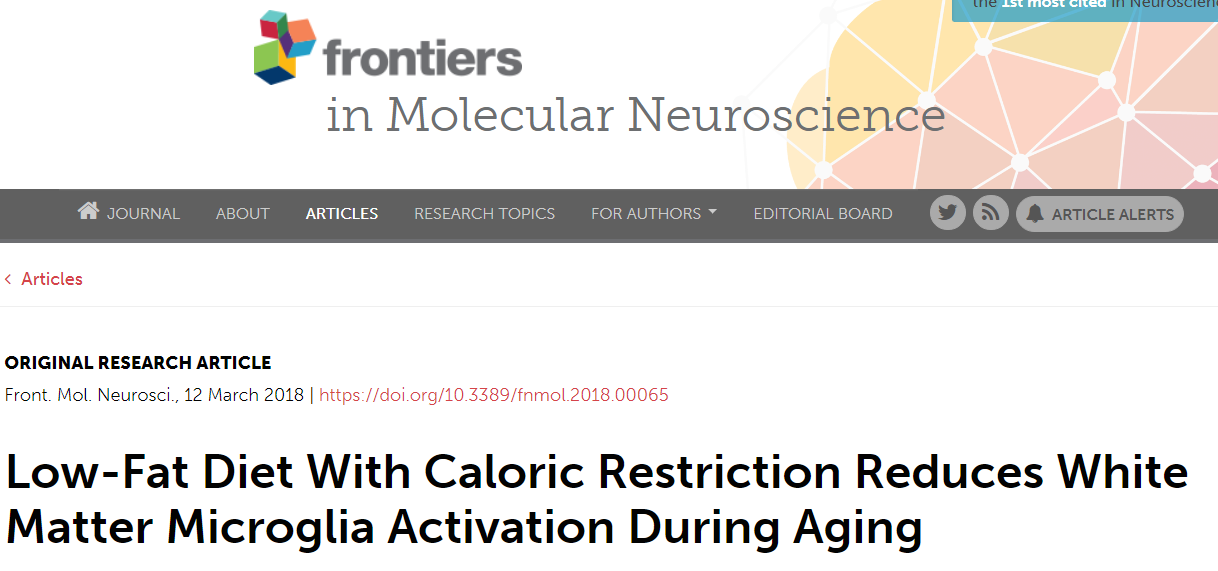Introduction: How to combat aging through diet control is a problem that many scientists are actively researching. Recently, a research team from the University of Groningen has discovered a “meal” preventing the related changes in aging induction!

On March 12th, this study published in Frontiers in Molecular Neuroscience entitled "Low-Fat Diet With Caloric Restriction Reduces White Matter Microglia Activation During Aging" confirms that "low fat diet" combined with "caloric restriction" prevented aging Activation of brain immune cells, microglia, in mice.
Bart Eggen, the author of the paper, said: "Around the world, obesity and aging are ubiquitous and increasing, but their impact on the central nervous system is not very clear. In this study, we decided to investigate A high-fat diet or a low-fat diet, combined with exercise and food restrictions, will affect microglial cells during mouse aging."
As a type of brain cells, microglia help maintain the integrity and normal function of brain tissue. The dysfunction of such cells is associated with neurodevelopmental disorders and neurodegenerative diseases. At the same time, microglia-driven inflammatory responses have also been shown to be associated with aging in specific regions of the brain.

In the study, Eggen and colleagues investigated the effects of a high-fat diet and a low-fat diet on inflammation and microglial markers in the hypothalamus of 6-month-old mice. At the same time, they further studied the effects of these two diets on two-year old mice microglia. It is worth mentioning that these two-year-old mice experienced a lifelong exercise regime or a lifelong dietary restriction (heat reduction of 40%).
The results showed that only when mice were fed a low-fat diet combined with caloric restriction could the aging-induced inflammatory activation of microglia be prevented. Low-fat diet alone is not sufficient to play the same role.
Eggen et al. also found that although other studies have shown that exercise is associated with a reduced risk of certain diseases, the study shows that exercise is not as effective as calorie restriction in preventing aging-related changes.
Scientists are careful to point out that more work needs to be done to understand the significance of these findings. In their study, mice received only one diet in their lifetime. It is unclear how dietary changes will alter these outcomes. For example, whether switching to a low-fat diet can eliminate the negative effects of high-fat diets and unrestricted diets. influences. In addition, they need to further determine how these changes correspond to the cognitive abilities of mice.
"Although, these data have indeed proven that dietary fat content and caloric intake are important parameters affecting brain aging in mice. Microglia are only restricted when fat content and calorie intake are simultaneously limited. Changes induced by aging can be prevented," concluded Eggen.
References:
Caloric restriction in combination with low-fat taste protective protect mouse brains
Souce: NovoPro 2018-04-14
